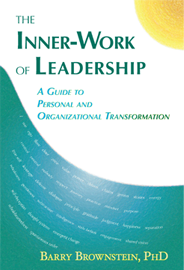What can explain the cheating, the lying, the whoring, the power-mad behavior exhibited by many Congressmen? Cases in point are not the point of this post. But, what can explain their thinly disguised contempt for the American people and their addictions to money, alcohol, drugs, and sex? Most importantly, what can explain their voting for policies that are ruining the nation? No doubt, many are well-intentioned people saddled with ordinary human frailties and ignorant of economics.
As the saying goes, “But wait, there is more.” Congress, as a collective body, is not only ignorant of economics; importantly, it is ignorant of what brings happiness to human beings.
The idea of the “pursuit of happiness” is in our societal DNA. Yet, this “inalienable right” as contained in the Declaration of Independence has often puzzled people. What exactly does this mean? Clearly, there is no right to happiness; and certainly, others are not obligated to make you happy. You are simply free to pursue happiness, as long as you don’t trample on the rights of others to pursue their happiness.
Jefferson had no illusions about the sources of happiness. He told us directly what he thought were the sources of happiness:
Our greatest happiness does not depend on the condition of life in which chance has placed us, but is always the result of a good conscience, good health, occupation, and freedom in all just pursuits.
Be assiduous in learning, take much exercise for your health, and practice much virtue. Health, learning, and virtue will ensure your happiness; they will give you a quiet conscience, private esteem, and public honor. Beyond these we want nothing but physical necessaries, and they are easily obtained.
Jefferson’s wisdom is consistent with the latest academic research. Once we are beyond the necessities of life—and no, these necessities do not include SUVs and McMansions—hedonic changes do little to increase our happiness. In my forthcoming book The Inner-Work of Leadership, I write:
In her book The How of Happiness, psychology professor Sonia Lyubomirsky found “about 10% of the variance in our happiness levels is explained by differences in life circumstances or situations—that is whether we are rich or poor, healthy or unhealthy, beautiful or plain, married or divorced, etc.” She found that changes in life circumstances—when not accompanied by internal changes—have only a temporary effect on happiness…
Lyubomirsky systematically debunks our myths about happiness. Is happiness out there for us to find? No, it isn’t. She explains, “Happiness more than anything, is a state-of-mind, a way of perceiving and approaching ourselves and the world in which we reside.” She offers evidence confirming that happiness is not found in our circumstances. She observes, “The reality is that the elements that determine our happiness are with us right now waiting to be taken advantage of.” In other words, Lyubomirsky’s research confirms what the perennial wisdom has taught for a long time: We don’t obtain happiness from people or from what we do, we bring our happiness or lack of it to our circumstances. In this world, many choose against their own happiness because they do not understand the source of happiness.
Back to our Congressmen. Yes, they are economically illiterate; but also, they are seeking happiness where it cannot be found—more money, more power, more prestige, a bigger house, another drink, another sexual liaison.
Happiness is an inside job. Those who don’t understand this are dangerous to themselves and to others. A Congressman addicted to more money, in a false pursuit to relieve their existential unhappiness, will sell their vote to the highest bidding lobbyist. A Congressman addicted to power, however trivial it is, will rarely vote against party leadership even when handed a thousand page bill that they have never read. And when the outcome is disastrous, they relieve their guilt with the lie that they are serving the “public interest.”
Of course, there is no such thing as a collective “public interest.” The “cash for clunkers” program hailed a “wild success” benefited some auto dealers and some consumers; it hurt the bulk of taxpayers and consumers in the market for a good used car or car parts.
Even if it were possible to formulate policy in the public interest, our Congressmen would never discern it. They are “soul sick;” in their quest to find happiness where it is not, they have separated themselves from and not joined with society.
They can’t feel that inner peace that they are searching for, because they are running too fast, and they are afraid to meet what is inside. In the process, they are destroying this country with the decisions they are making.
There is little that we can do; until collectively, we slow down enough to look inside and make another choice. As within, so without. When we change, so will the politicians.



I read this article “Whole Foods Attempts to Quell Boycott Cries.” Which started over the CEO of whole food making a comment on health care. The column, which appeared Aug. 12, was critical of President Obama’s health care plan. It urged the country to embrace a more free market health care system. “A careful reading of both the Declaration of Independence and the Constitution will not reveal any intrinsic right to health care, food or shelter. That’s because there isn’t any. This ‘right’ has never existed in America,” Mackey wrote in the piece.
I think Mackey has a valid point regarless how unpopular his statement has been with Whole food customer. Freedom brings risks, but to take away personal risks is to sacrifice your own freedoms and the freedom of others in essence kill their own pursuit of happens along with your own.
I talked to person who had it hard the last 2 years the other day at a store i was helping out at he been living out of a tent. I asked him how could he stand it, he said to be honest I never been happier. he mentioned he actually has saved 3 times the money in 2 years then he did at a job where he made 70k a year for 5 years. I asked how he said ” I worked, I go to the gym right by work, I shower I head back to my tent.” I simplified my life. I no longer have the 300k house, Brand new car, or go out for expensive dinners. If I can do it anyone else can do it. I was pretty impressed with him and finally realized I have met someone who has become a true American in pursing his own happiness with out trying to take away the freedoms and happens of others.
Mike–valid points about our rights and responsibilities are usually unpopular. Doesn’t mean their not correct.
In general, the reason Congresspeople are screwing things up is for the same reason people in general screw things up this way. They are mistaking pleasure with happiness. It pleases me when I go out and buy some new gizmo for my motorcycle I’ve been wanting. But in general, this only satisfies my ego. What makes me happy is the simple pleasure of meandering along the back roads on my bike on a sunny day; kind of a Zen thing where you get in tune with the bike and the road and it all becomes sort of effortless. But if I mistake the pleasure for the happiness, I spend all my time and money buying gizmos and worrying about the latest and greatest bike on the market instead of enjoying the perfectly capable machine I already own. I am reminded of the cliche toast “May you always have what you want and (the important part here) may you always want what you have.”
A thought: I posit that an internally happy population will not build an economy that is comprised largely of consumption.
I don’t know, Tesh. It could be argued that all of the world’s industry is based on consumption, because if no one wants or needs it, why build it? I would counter by saying that an internally happy population wouldn’t be driven to consume for the sake of consumption. Food still needs made, people would still go out to eat, buy cars and furniture, etc…, but no longer would these businesses be driven to profit for the sake of profit, because an internally happy population wouldn’t respond to advertising as we see it today. Quality would likely matter more than quantity. The financial pages wouldn’t hold the headlines they way they do now. I can’t forsee all of how the world would look, but it would be a much different place!
Oh, consumption will still occur as a means of sustaining life, I’m just noting that the *economy itself* mightn’t be 70% consumption. That way lies mathematical inevitabilities of collapse and ruin, and an internally happy populace doesn’t need to consume to be happy.
Actually, the art and science of economics would completely. What’s the textbook definition of economics? The study of human behavior in the face of unlimited wants and scarce resources. If our wants suddenly become limited because we all collectively realize that while some things may be necessary they are not all that important, then we are going to find ourselves dealing with a major shift in everything economic and financial.
After reading Dr. Brownstein’s article, I agree with the premise that the private victory over self will better lead to the public victories that our country needs. I am left to wonder, however, why we seem to have an abundance of these “empty suits” in these positions of national trust. Are we as a people too gullible and vote them in because of a slick campaign and a winning smile? Or is there something about the system in which they find themselves that transforms an honest do-gooder into what Dr. Brownstein has described? What happened to our “Mr. Smiths” that go to Washington to represent their constituency and lead rather than follow?
Mark, I think the system, which includes the notion of corporate personhood that carry into freedom of speech and campaign finance law, allows undue corporatist influence on our politicians as they run for office. The media, also controlled largely by corporate interests, often lend credibility to candidates who are favored by those to whom they’re beholden. So, IMHO, the bigger the race, the more these interests have to gain (or lose), so the money flows to the empty suits: the candidates who are receptive to and protecting of corporatist (aka fascist) interests. (Cool info on the history of corporate law here:
http://en.wikibooks.org/wiki/US_Corporate_Law/Introduction. Per this history, there was a point in time back in the 1980s when deregulation was being promoted, which allowed freer operation by corporations: too bad they didn’t roll back corporate personhood and liability limitations, to make their new level of responsibility more symmetric w/r/t their new freedoms.)